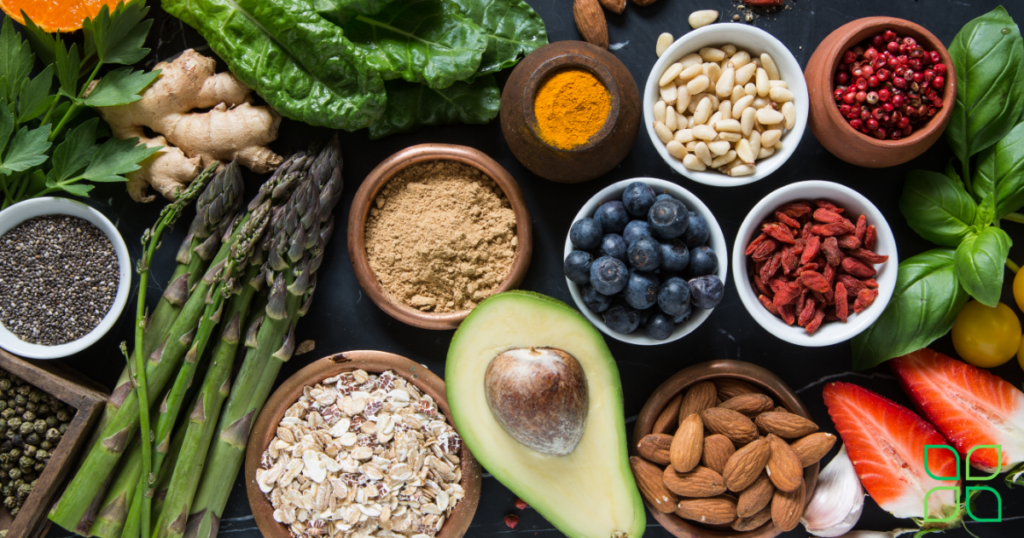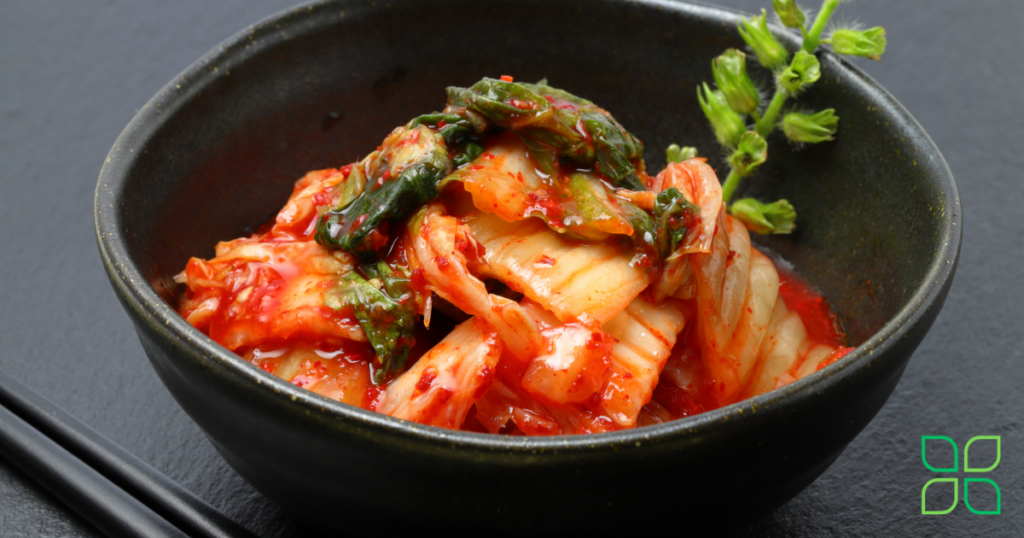The Power of Gut Health: Balancing Good and Bad Bacteria for Optimal Well-Being
In today’s blog post, we will discuss how important gut health is and how we can starve off harmful bacteria to help us become healthier.

Our gut plays a crucial role in our overall health, and it is essential to understand how our diet can impact the balance of good and bad bacteria in our microbiome.
The intricate world residing within our gut, known as the microbiome, holds immense power over our overall well-being. It is a delicate ecosystem bustling with trillions of microorganisms, including bacteria, viruses, and fungi, that coexist in a harmonious balance. This hidden world not only aids in digestion but also influences our immune system, mental health, and even weight management.
Our gut is like the control center, the hub that regulates our immune response, synthesizes essential nutrients, and even influences our mood and cognition. So when bad bacteria take over, it’s like a hostile takeover of our control center, wreaking havoc on every aspect of our health. It’s truly astonishing how something so small, so seemingly insignificant, could wreak havoc on the rest of our bodies.
Digestive troubles are often the first red flag that something is amiss. Diarrhea, bloating, gas, constipation, and other gastrointestinal symptoms become unwelcome companions, making our day-to-day lives uncomfortable and unpredictable.
It’s like having a constant battle within our own bodies, with these vile bacteria taking control of the battlefield.
But it doesn’t stop there. The consequences of poor gut health extend far beyond just digestive discomfort. These troublemakers have been linked to various health conditions, ranging from annoying to downright serious. Chronic fatigue, weight gain, weakened immune system, skin problems, leaky gut, and even mental health issues can all be attributed to the havoc wreaked by these pesky invaders.
The good news is that by understanding what feeds and grows bad gut bacteria is crucial to regaining control of your health. Just know that a diet heavily reliant on highly processed foods, saturated fats, and excessive sugar can harm our gut health. Our gut, often referred to as our second brain, plays a crucial role in maintaining our overall well-being. It is responsible for breaking down and absorbing the nutrients from the food we consume and housing trillions of bacteria that contribute to various bodily functions.
The Impact of a Processed Food Diet on Gut Health: A Closer Look at the Consequences
When we consume a diet high in processed foods, such as fast food, packaged snacks, and sugary beverages, we are essentially bombarding our gut with substances it is not equipped to handle.

These foods are typically high in unhealthy fats, refined sugars, artificial additives, and preservatives, which can disrupt the delicate balance of bacteria in our gut.
Excessive intake of saturated fats can lead to inflammation in the gut, causing discomfort and potentially contributing to conditions such as irritable bowel syndrome (IBS) and inflammatory bowel disease (IBD). Furthermore, these fats can also promote the growth of harmful bacteria while simultaneously discouraging the growth of beneficial bacteria, leading to an imbalance known as gut dysbiosis.
Processed foods are also often low in fiber, which serves as fuel for our gut bacteria. Without adequate fiber, our gut bacteria may not thrive and produce the short-chain fatty acids vital for our gut health.
These fatty acids help to nourish the cells lining our gut, reduce inflammation, and maintain a healthy gut barrier function.
Refined Sugars: Detrimental Effects on Gut Health
In addition, excessive consumption of refined sugars can profoundly impact gut health. These sugars fuel harmful bacteria in the gut, promoting their growth and suppressing the growth of beneficial bacteria. This can lead to an overgrowth of harmful bacteria, which can produce toxins and contribute to various gut-related issues, such as bloating, gas, and diarrhea.
Furthermore, the lack of essential nutrients in highly processed foods can deprive our gut of the necessary building blocks for proper functioning.
Without these nutrients, our gut may struggle to maintain its integrity, leaving us susceptible to gut-related disorders and compromising our overall health.
In summary, a diet dominated by highly processed foods, saturated fats, and excessive sugar can wreak havoc on our gut health. It disrupts the delicate balance of bacteria in our gut, promotes inflammation, and deprives us of essential nutrients. Therefore, prioritizing a diet that consists of whole, unprocessed foods rich in fiber and nutrients is crucial for maintaining a healthy gut and overall well-being.
The Importance of a Whole Foods Diet for a Healthy Gut and Well-being
The key to maintaining a healthy microbiome is understanding our diet’s critical role in shaping its composition. Every morsel that enters our body has the potential to either nourish or disrupt this delicate ecosystem. Just as we carefully tend to a garden, we must cultivate our gut with the proper nutrients to foster the growth of beneficial bacteria and keep detrimental ones in check.

When we consume a diet rich in whole foods, such as fruits, vegetables, whole grains, and lean proteins, we provide our gut with the necessary nutrients to thrive. These foods are abundant in various fibers, vitamins, and minerals that fuel the growth of beneficial bacteria, regulating the delicate balance within our microbiome. In turn, these bacteria enhance the absorption of nutrients, strengthen our immune system, and even produce essential vitamins.
Incorporating fermented foods like yogurt, sauerkraut, and kimchi can introduce probiotics, live bacteria that promote a healthy gut environment. Additionally, prebiotic-rich foods like onions, garlic, and bananas nourish these beneficial bacteria, helping them thrive.
Moreover, it is important to be mindful of potential gut disruptors such as antibiotics, which can significantly alter the bacterial balance within our gut. While antibiotics are necessary for treating infections, they can inadvertently eliminate both harmful and beneficial bacteria. In such cases, probiotic supplements can help replenish the gut with beneficial strains, aiding the restoration of a healthy microbiome.
10 Lifestyle Changes for Improved Gut Health: From Quitting Smoking to Maintaining a Diverse Diet
By understanding what makes good gut bacteria thrive and what makes the bad flounder, we can now make better, conscious choices that support the flourishing of beneficial bacteria.
Maintaining a healthy gut is crucial for overall well-being. A healthy gut microbiome, filled with beneficial bacteria, aids proper digestion and protects against various diseases. Here, we will discuss habits and practices that can naturally improve your gut health.
First, here are 11 lifestyle changes to improve gut health:
1. Quit Smoking:
Smoking is detrimental to gut health as it destroys gut flora. It can lead to inflammatory bowel disease and hinder digestion. To improve gut flora and restore gut health, it’s a good idea to quit smoking immediately.
2. Maintain a Diverse Diet:
A balanced and diverse diet is necessary to promote gut health. Limiting your diet to processed and sugar-rich foods can damage gut flora and lead to obesity. Include fiber-rich whole grains, legumes, leafy greens, and probiotic foods like yogurt to improve your gut microbiome.
3. Use Antibiotics Wisely:
While antibiotics are life-saving medications, their use can disrupt the gut microbiota. Antibiotics destroy both harmful and helpful bacteria in the body, affecting gut flora. After antibiotic use, take necessary steps to restore gut flora and avoid unnecessary antibiotic consumption.
4. Reduce Stress:
Chronic stress can negatively impact gut microbiota by decreasing blood flow to the gut. This alteration in gut microbiota can lead to an increase in harmful bacteria. Engage in stress-relieving exercises, such as yoga and physical activity, to reduce stress levels and promote the growth of healthy bacteria.

5. Sleep Enough for a Healthier Gut:
Research has shown a strong connection between sleep deprivation and gastrointestinal disorders. Lack of sleep can disrupt the balance of gut bacteria, known as the gut microbiome. Disruptions in this delicate balance can lead to various gut-related problems, such as inflammation, irritable bowel syndrome (IBS), and even obesity. By making sure you get enough sleep, you ensure good gut health.
5. Increase Fiber-Rich Foods:
Fiber is a crucial nutrient for gut health, yet over 90% of people do not consume enough of it. Fruits, vegetables, and legumes are fiber-rich, which increases the number of beneficial gut bacteria. Studies show that a diet rich in fruits can prevent the growth of disease-causing bacteria. Include foods like almonds, apples, and pistachios to promote helpful gut bacteria and prevent inflammation. Beans are also packed with fiber and can be added to pasta sauce or used as a substitute for pasta. Other high-fiber options include popcorn, frozen peas, raspberries, and potatoes with the skin on.
6. Include Prebiotic Foods:
Prebiotic foods promote the growth of healthy gut bacteria. Foods like onions, garlic, asparagus, bananas, oats, apples, cocoa, and flaxseeds are beneficial for maintaining a healthy gut and preventing diseases.
7. Consume More Colorful Plants:
When selecting plants, opt for brighter and darker-colored ones. These plants contain higher levels of polyphenols, which act as rocket fuel for your gut microbes. Polyphenols, found in plant-based foods, provide numerous health benefits, including reducing blood pressure, cholesterol levels, and inflammation. Purple carrots have nine to ten times more polyphenols than regular carrots. Foods like broccoli, kale, almonds, onions, cocoa, dark chocolate, red wine, grape skins, green tea, blueberries, and even extra virgin olive oil are rich in polyphenols and can improve gut microbiota.

8. Incorporate Whole Grains:
Whole grains are a rich source of fiber and indigestible carbs that are broken down by gut bacteria. Consuming whole grains can increase the number of good bacteria in the gut and reduce the risk of cardiovascular disease. However, individuals with gluten intolerance should consult a healthcare professional before incorporating gluten-rich foods into their diet.
9. Eat More Plants:
The first tip is to increase your intake of plants. Aim for a diverse range of plants, including vegetables, fruits, nuts, seeds, herbs, and spices. Each plant contains different nutrients that are beneficial for your gut microbes. Try adding herbs and spices to your cooking, as they have high levels of defense chemicals called polyphenols, which are helpful for your gut health. You can also buy mixed herbs, spices, grains, and nuts to incorporate a variety of plants into your diet.
10. Incorporate Probiotics:
The best way to grow and nurture good gut bacteria is to take probiotics. Probiotics are beneficial bacteria that can improve gut health. One way to get more probiotics is to consume probiotic supplementation. Another way is to include probiotic foods into your daily diet, which I will list next.
Boost Gut Health with These Top 5 Fermented Foods
Here are the top 5 fermented foods to help feed your good gut bacteria:
1. Yogurt:
Yogurt is often mistaken as a dessert, but it is actually a fermented food that is great for your gut. Flavored yogurts usually contain natural flavors and added sugar, which can harm your gut health. Opt for plain yogurt instead.
2. Kefir:
Kefir is a drinkable fermented yogurt packed with beneficial bacteria and fiber. Choosing kefir without added sugar is essential, as sugar can hinder your gut health. Flavored kefir often contains added cane sugar, which can weaken your immune system and kill good gut bacteria. Stick to plain kefir to reap the gut-friendly benefits.
3. Sauerkraut and Kimchi:
Sauerkraut and kimchi are also excellent gut-friendly foods. These fermented foods are packed with beneficial bacteria. They are rich in fiber, which acts as a prebiotic to feed your gut bacteria. Look for raw, fermented sauerkraut and kimchi in the cold case, as pasteurized versions do not contain as many living bacteria. These foods are great to eat as is, but avoid heating them up, as it can kill the bacteria.

4. Cottage Cheese:
Cottage cheese is another gut-friendly food that has gained popularity recently. It is an excellent source of protein and contains living cultures that benefit your gut. Opt for organic cottage cheese with organic fat for the best results. I love pairing cottage cheese with sauerkraut for a delicious and gut-friendly lunch option.
5. Avocados:
Lastly, avocados are not only a healthy fat but also a fiber-rich food. They contain about 13-14 grams of fiber per avocado, making them one of the most fiber-rich foods in the produce section. Fiber acts as a prebiotic, feeding your gut bacteria and supporting a healthy gut.
These fermented foods can be added to sauces and salad dressings or enjoyed on their own. Studies have shown that consuming fermented foods improves immune and gut health. By including these super gut foods, you can supercharge your microbes to help you on your way to a healthier gut.
By incorporating these ten lifestyle changes and making sure to increase your good bacteria by consuming probiotic-rich foods, you can ensure your way to a healthier gut in the shortest amount of time. But to supercharge that success, you need to also make better decisions by making a conscious effort to starve off the bad gut bacteria by avoiding foods that they love.
Top 5 Types of Foods to Avoid to Starve Bad Gut Bacteria for a Healthier Gut
Here are the top 5 food types to avoid to starve the bad gut bacteria:
1. Avoid Ultra-Processed Foods:
Ultra-processed foods make up a significant portion of our diet and are harmful to our gut microbes. These foods, which often have health claims, can still negatively impact our gut health. To improve your gut health, swap out ultra-processed snacks for healthier alternatives. Olives, popcorn, peanut butter, nuts and seeds, hummus with vegetables, and berries are all nutritious snack options that support gut health.
2. Moderate Alcohol Consumption:
Excessive alcohol consumption can harm the gut by causing inflammation. However, moderate consumption of certain types of alcohol, such as red wine, can promote the growth of healthy gut bacteria. The presence of polyphenols in red wine benefits gut health. Just limit your alcohol intake and, instead, drink plenty of water for better gut health.

3. Avoid Sugary Treats:
Bad microbes thrive on sugar, so reducing your consumption of sugary treats is crucial. This includes candies, pastries, sodas, and other foods that contain high amounts of added sugars.
4. Reduce High-Sugar Fruits:
While fruits are generally healthy, some have higher sugar content than others. Fruits like mangoes, grapes, and figs, which are high in natural sugars, should be consumed in moderation if you are trying to starve bad microbes.
5. Reduce Foods High in Fat:
While some fats benefit our health, excessive consumption of high-fat foods can disrupt the balance of bacteria in our gut. Limit your intake of fatty foods, especially those high in saturated and trans fats, and focus on eating healthy fats instead.
By avoiding these food types, you can create an environment in your gut that is less favorable for harmful microbes to thrive. This, in turn, allows good bacteria to flourish and has a positive impact on promoting a healthier gut.
Unlock Optimal Health with a Balanced Gut: Start Today!
If you need assistance in improving your gut health, it is advisable to consult with a healthcare professional. They can assess your intestinal wellness and develop a personalized treatment plan to help you achieve optimal digestion and overall well-being.

Remember, you have the power to take control of your gut health and starve out the harmful microbes. By making conscious choices about what you eat, you can create a healthier environment for your microbiome to thrive. Start today and experience the benefits of a well-balanced gut.
Are you already using some of these remedies?
